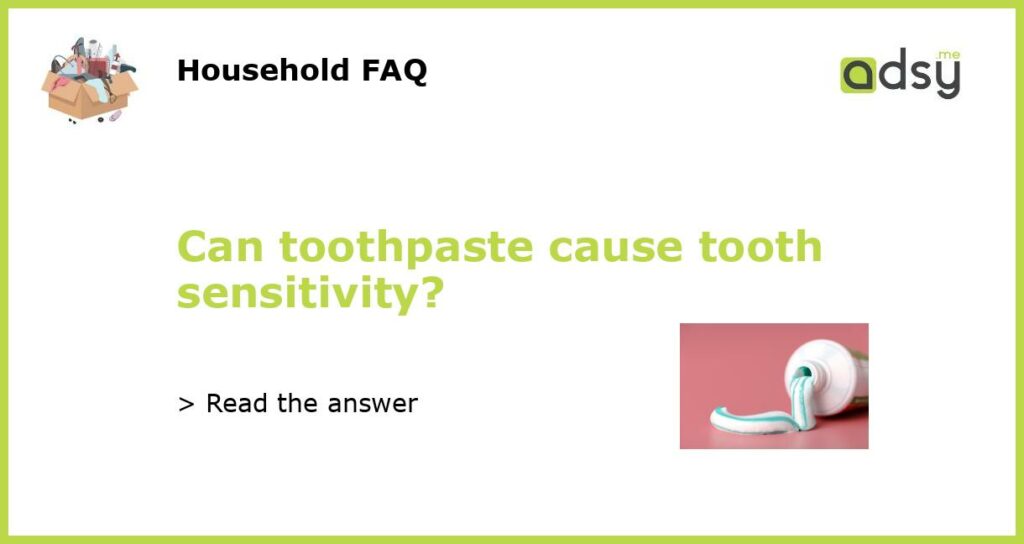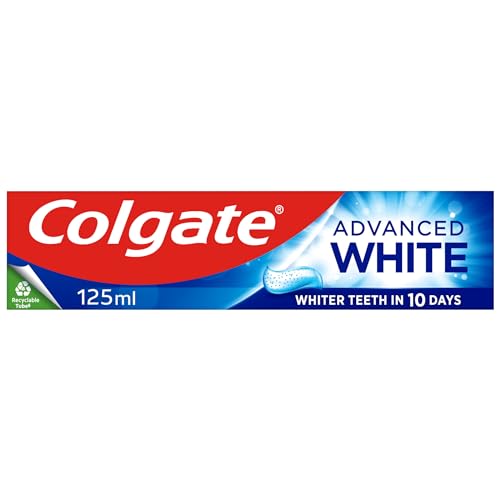Can toothpaste cause tooth sensitivity?
Tooth sensitivity is a common dental issue that can cause discomfort and pain when consuming hot or cold foods and beverages. Many factors can contribute to tooth sensitivity, including enamel erosion, gum recession, and tooth decay. But can toothpaste be a culprit in causing tooth sensitivity?
The role of toothpaste in tooth sensitivity
While toothpaste is an essential part of our daily oral hygiene routine, certain ingredients found in toothpaste can potentially contribute to tooth sensitivity. One common ingredient is sodium lauryl sulfate (SLS), a foaming agent that helps create the familiar lathering sensation during toothbrushing. SLS can cause irritation and damage to the protective layer of enamel on our teeth, leading to increased tooth sensitivity.
Another ingredient to watch out for is potassium nitrate, which is often included in toothpaste marketed for sensitive teeth. This compound works by blocking the nerve that transmits pain signals from the tooth to the brain. However, long-term use of toothpaste with potassium nitrate can actually lead to a decrease in saliva production, which in turn can cause dry mouth and an increased risk of tooth decay and further tooth sensitivity.
Taking precautions to prevent tooth sensitivity
If you are experiencing tooth sensitivity and suspect your toothpaste may be the cause, there are steps you can take to prevent further sensitivity:
1. Consult your dentist: Make an appointment with your dentist to discuss your tooth sensitivity. They can examine your teeth and provide recommendations tailored to your specific needs. They may recommend switching to a toothpaste that is specifically formulated for sensitive teeth or one that does not contain potential irritants.
2. Look for toothpaste alternatives: There are toothpaste alternatives available that are specifically formulated to be gentle on teeth and gums. These alternatives often contain natural ingredients and avoid harsh chemicals that can contribute to tooth sensitivity. Look for toothpaste options that are fluoride-free and made with natural ingredients such as baking soda or neem.
3. Practice proper oral hygiene: In addition to using toothpaste that is suitable for your specific needs, it is crucial to practice good oral hygiene habits. Brush your teeth twice a day for two minutes each time, using a soft-bristled toothbrush. Be gentle while brushing, avoiding aggressive scrubbing that can further damage enamel and contribute to tooth sensitivity.
When to seek professional help
While making changes to your oral hygiene routine and toothpaste choice can often help alleviate tooth sensitivity, there are instances where professional intervention may be necessary. If your tooth sensitivity persists or worsens despite these changes, it is important to consult with your dentist. They can determine the underlying cause of your sensitivity and recommend appropriate treatment options, such as dental desensitizing treatments or fillings for cavities causing sensitivity.
Toothpaste is an essential part of maintaining good oral hygiene, but certain ingredients can contribute to tooth sensitivity. By being aware of the potential causes and taking necessary precautions, you can protect your teeth and enjoy a comfortable, pain-free smile.






